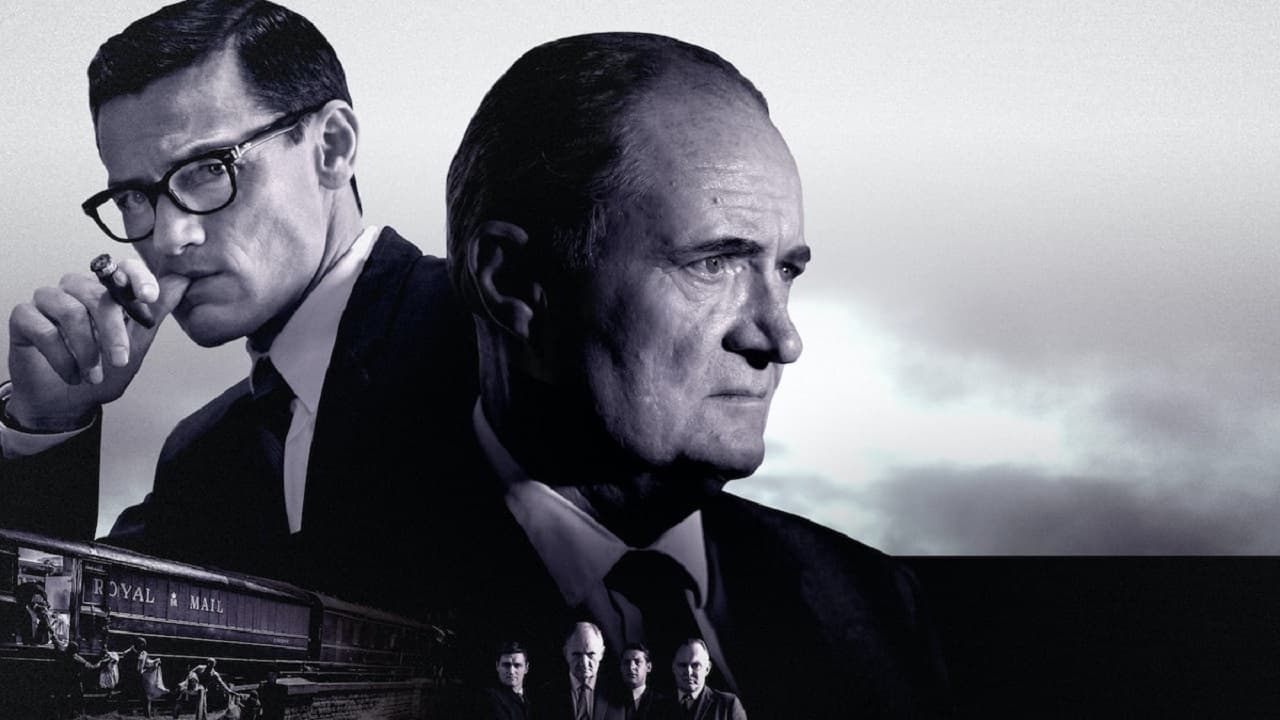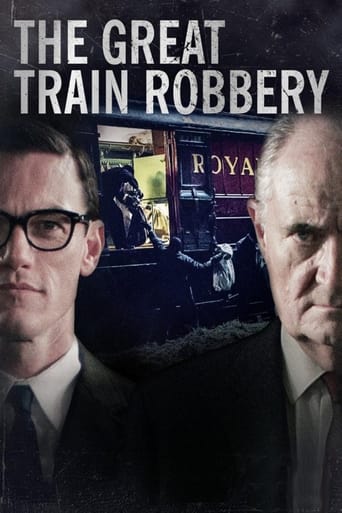

While it doesn't offer any answers, it both thrills and makes you think.
... View MoreThe movie is wonderful and true, an act of love in all its contradictions and complexity
... View MoreThe film's masterful storytelling did its job. The message was clear. No need to overdo.
... View MoreThere's a more than satisfactory amount of boom-boom in the movie's trim running time.
... View More"The Great Train Robbery" is a miniseries in two parts. The first part focuses on mid-range crooks, led by Bruce Reynolds (Luke Evans) who decide to rob a train carrying a fortune in money. The second is about the police investigation and search for them.I really enjoyed the first part, but the second part for me was a let- down. The criminals were more interesting than the police, led by DI Frank Williams (Robert Glenister) for some reason. And I sort of wanted them to get away with it. I'm sure that sounds terrible.The acting is very good, and since it's based on a true story, it was interesting to see how the police picked up the trail of the crooks and to read at the end what happened to them.I do recommend it, but you'll find the second part less compelling.
... View MoreI live in Copenhagen and as quiet a few of you have been writing is about the weather. I'm sure it's pretty the same temperature/Fahrenheit here in Copenhagen as in Great Britain. And for the love of money i don't get why you can't see pass that..?It's not a documentary! For me the "sun was shinning" all the time.Cos the actors were doing such a pretty god job and for me it could have been snowing all day if you get my drift.. And for the ten lines, witch is a stupid idea.. I hope we will see more to English series like this, cos they usually are pretty backdrop'ish with a studio audio line that follows. So hurray for that old chap.
... View MoreBroadcast in two parts - "The Robber's Tale" and "The Copper's Tale" - THE GREAT TRAIN ROBBERY retells the famous events of August 1963 when over £2m. was stolen from a mail train traveling from Glasgow to London. The events have been extensively retold elsewhere, notably in Peter Yates' fictionalized version ROBBERY (1967) with Stanley Baker, or BUSTER (1988) a comedy-drama with Phil Collins as robber Buster Edwards. "The Robber's Tale" (dir. Julian Jarrold) focuses specifically on Bruce Reynolds (Luke Evans) as the brains behind the whole operation; the more celebrated crook Ronald Biggs (Jack Gordon) - who passed away the night the program received its first broadcast - receives scant attention. "The Copper's Tale" looks at the painstaking ways in which Tommy Butler (Jim Broadbent) went about investigating the case and bringing the criminals to justice. Stylistically speaking the production is very much in keeping with current British television costume dramas, with low-key, almost washed-out lighting, lots of period detail (for example, the obligatory London bus from the mid-Sixties) passing across the back of the frame, or a couple of young mothers pushing their prams round the park) and plenty of focus on character through shot/reverse shot sequences. The style is diffuse, with the emphasis placed on ambiance as much as plot. "The Robber's Tale" actually proves something of a disappointment; not a lot happens in terms of action, while some of the (predominantly youthful) cast simply do not seem convincing as mid- Sixties London hoodlums. Perhaps they might have done more research into the behavior, mannerisms and (most significantly) the argot of that period. "The Copper's Tale" is a lot better, not least because of the interplay - or should that be rivalry - between Butler and his immediate subordinate Frank Williams (Robert Glenister). Although ostensibly on the same side, they seem unable to form a united front, at least professionally. Butler might be a good cop, but he certainly lacks any management abilities.
... View MoreThis two part drama was a retelling of the The Great Train of 1963. The first part was the Robbers Tale which was a straightforward story of the planning and execution of the robbery. This was the most fascinating aspect of the drama as over the years, the personalities of some of the robbers (Ronnie Biggs, Buster Edwards) has overshadowed the events of the Train Robbery and the main players involved. Luke Evans, Martin Compston and Paul Anderson give the best performances.The second part was the Policeman's Tale and featured Jim Broadbent as DCS Butler, hell bent in getting the gang like the sheriff of an old wild west town which was very much how he was introduced. This was more procedural and not as interesting or riveting as the first part.Incidentally both parts had different directors but Butler was just too much of a dullard and Broadbent looks too old to even be playing a cop on the verge of retirement. Able support by Robert Glenister as the exasperated and interesting to see that 'Slipper of the Yard' (played by Nick Moran) who in later years seemed to have been more prominent in the media as the cop hunting the train robbers was more of a relegated character in this drama. Well now Slipper is dead he will not be able to sue for his lack of prominence as in the past when he was alive he was rather quick to shout libel for any slight shown on his character!
... View More